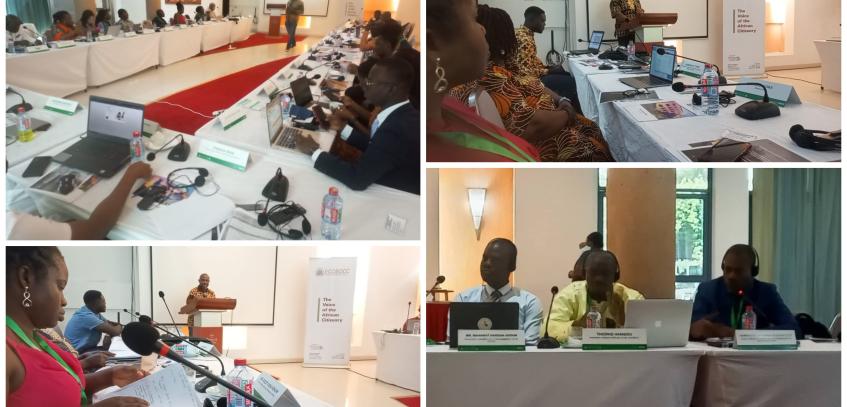The Economic, Social, and Cultural Council of the African Union hosted a two-day 'Thematic Training for Trainers (ToT) on advocacy, peacebuilding, and reconciliation in Accra, Ghana, as part of the EU African Peace and Security Architecture (EU-APSA) IV support programme, in collaboration with the Common Market for Eastern and Southern Africa (COMESA).
The two-day training of trainers was held as a follow-up activity to the preceding 'CSO Dialogue Across Borders: Peace, Security, and Stability in the Sahel,' with the larger goal of bringing together CSO experts from other impacted regions such as the Horn of Africa and Lake Chad Basin to develop strategies to enhance cross-border, sub-regional collaborative efforts in addressing elements of conflict in the aforementioned regions.
The training, facilitated by experts from the West Africa Network for Peacebuilding (WANEP) Dr Chukwuemeka Eze, Executive Director, and Ms Queeneth Tawo, Regional Coordinator Women, Peace, and Security Programme, had the overall goal of enhancing the capacities of a selected number of CSO practitioners as experts and trainers for future advocacy, peacebuilding, and reconciliation training in the Horn of Africa, Lake Chad Basin, and Sahel regions.
Participants received specialised training on a variety of topics, including peacebuilding's spectrum, conflicts and conflict analysis, typologies of conflict responses, conflict transformation, reconciliation, conflict sensitive' advocacy and peacebuilding; conflict advocacy and gender; cross-border engagement and dialogues; transitional justice; and community-led/driven peace and reconciliation initiatives.
The ToT is the first of trainings planned as part of ECOSOCC's endeavours to implement the activities outlined for the EU-APSA IV Programme with a particular emphasis on strengthening the African Union's work in improving the continent's peace and security fabric, as well as popularising the APSA and other key instruments.
The ToT is significant in this context because it sets the stage for ongoing efforts to identify and fill competency gaps in on-the-ground training needs, particularly for grass-roots CSOs who ought to be carried along in efforts to bring Agenda 2063 Aspiration 4, which envisions a peaceful and secure Africa, to fruition.
The training offered an opportunity to fortify the skills of civil society representatives from Benin, Burkina Faso, Cameroon, Chad, Gambia, Ghana, Guinea, Niger, Nigeria, Senegal, South Sudan, and Uganda in understanding conflict typologies in their respective regions and locales, as well as their tenacity for advocacy, particularly in terms of advocacy work sustainability.
CSOs were encouraged to identify non-traditional peace and security training themes that are often ignored or understudied, the immersive experience of the ToT highlighted and identified training needs and gaps. Some key takeaways for civil society actors include being audacious in their advocacy efforts, finding their niche, and being strategic in their focus, areas of expertise, and mandates when operating in the realm of peace and security. These efforts should be supplemented by intentional consultations with relevant constituents, mapping out advocacy strategies, empowering more women and youth in peacebuilding, indigenizing concepts on peace and security, and ensuring that application takes precedence over nomenclature in efforts to promote the AU's peacebuilding initiatives.
Finally, in light of its efficacy in laying the groundwork for civil society representatives in the Horn of Africa, the Lake Chad Basin, and the Sahel, CSOs called for an advanced and holistic strategy for disseminating technical expertise and shoring up CSOs' capacities on early warning and early response mechanisms through future pieces of training under the EU APSA IV programme.





